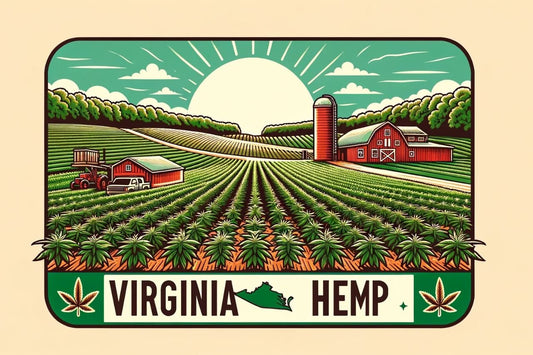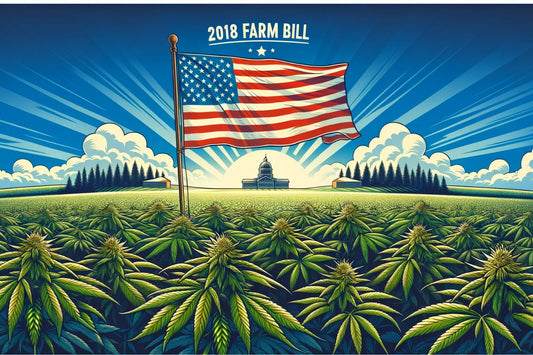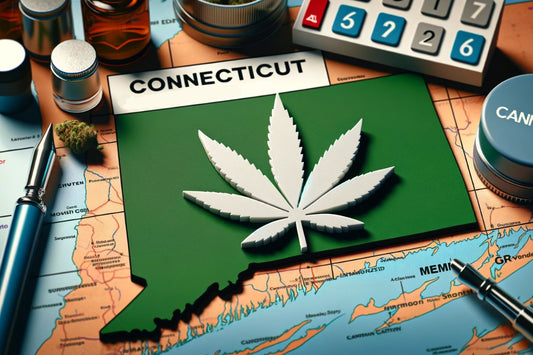The rise of the hemp industry in the United States
The U.S. hemp industry has witnessed a significant surge in growth, particularly in the realm of hemp-derived cannabinoids, following the enactment of the 2018 Farm Bill.
This legislative change, which effectively redefined hemp and opened the door for its widespread cultivation and sale, has catalyzed a dynamic and rapidly expanding market, thrusting hemp into the spotlight of economic discussions and policy debates.
Economic impact and market growth
Since the 2018 Farm Bill, the U.S. hemp industry has evolved into a multi-billion dollar sector, employing hundreds of thousands across the nation. With a total market demand valued at over $28 billion, the industry has created a significant number of jobs and has a substantial economic impact, totaling more than $79 billion.
Policy dynamics and regulatory challenges
The rapid expansion of the hemp market has, however, posed challenges for regulators. Federal guidelines have struggled to keep pace with the industry’s growth, leading to a patchwork of state-level regulations.
This fragmented regulatory landscape has sparked discussions on the need for more comprehensive and uniform federal regulation to guide the burgeoning industry.
Hemp's economic reach: Beyond cannabinoids
While often associated with cannabinoids like CBD, the hemp industry's scope extends far beyond. It encompasses various markets, including hemp fibers and grains/seeds, each contributing uniquely to the industry’s overall economic footprint.
Surveying the industry: A comprehensive analysis
A national survey aimed to quantify the U.S. hemp-derived cannabinoid industry, delving into aspects such as revenues, employment, and potential tax revenue. This data-driven approach sheds light on the actual economic and social impact of the industry.
Supply chain and job creation
The supply chain for hemp-derived cannabinoids extends across all 50 states, highlighting its nationwide reach. This industry not only provides over 325,000 jobs but also contributes significantly in wages, amounting to more than $13.2 billion annually.
Tax revenues from state sales
The contribution of the hemp industry to state tax revenues is noteworthy. Contrary to the narrative that hemp sales do not generate significant tax income, the reality is quite the opposite, with substantial tax revenues being realized in states with legal markets.
Understanding the total economic impact
The hemp industry’s total economic impact, nearing $80 billion, is a testament to its role in the U.S. economy. This figure, derived using a multiplier effect on sales, underscores the vast economic potential of this sector.
The effects of prohibition in certain states
In states where hemp-derived cannabinoids are banned, the economic impact is markedly negative. These prohibitions lead to job losses and reduced tax revenues, underscoring the economic benefits of a legalized and regulated hemp market.
Future of the hemp industry
Looking ahead, the potential economic consequences of any future bans on hemp-derived cannabinoids could be significant. Such actions would likely have adverse effects on revenues, employment, and state economies. On the other hand, a more robust federal regulatory framework could help realize the full economic potential of this industry.
Key takeaways from the U.S. hemp industry growth
- Post-2018 Farm Bill, the U.S. hemp industry has seen remarkable growth, particularly in cannabinoids like CBD.
- The industry's total demand is valued over $28 billion, with an economic impact exceeding $79 billion.
- Employment in the sector is substantial, with over 325,000 jobs and $13.2 billion in wages.
- State-level tax revenues from hemp sales debunk the notion that hemp does not contribute to tax incomes.
- A more comprehensive federal regulatory approach could further enhance the industry’s growth and stability.
The U.S. hemp industry, in the wake of the 2018 Farm Bill, has become a significant economic player, contributing vastly to job creation, tax revenues, and overall economic growth. While regulatory challenges persist, the industry's potential continues to be a point of keen interest and optimism for the future.










